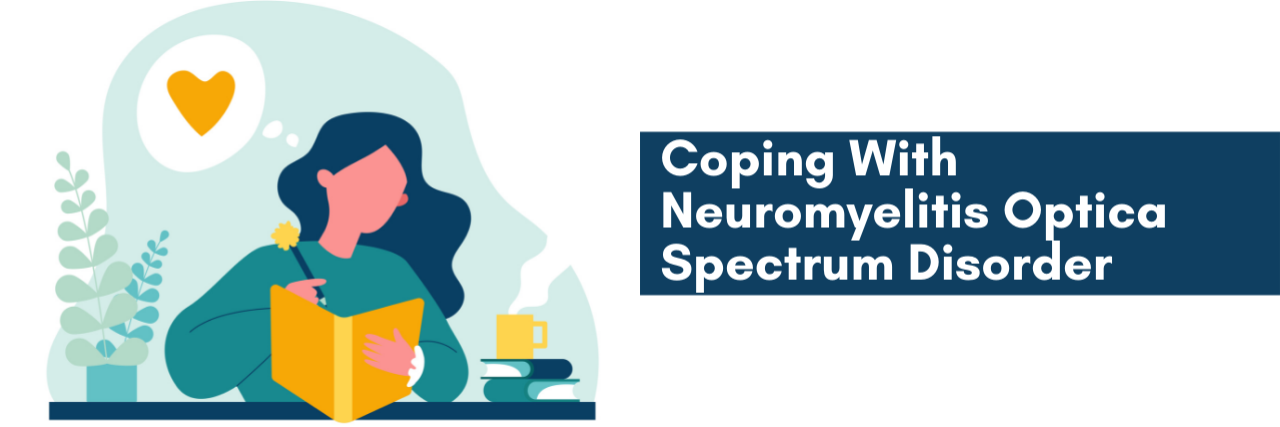Kings College in London did a study to explore how positive thinking and affirmations can affect the brain. The study showed that positive thoughts increase the capability to shut out negative intrusive ones.
Prior to looking at this study, I previously had the mentality that thoughts cannot control the outcomes of real-life situations. However, when I was diagnosed with a rare autoimmune disease called neuromyelitis optica spectrum disorder (NMOSD), then re-diagnosed with MOG antibody disease, my perspective shifted.
In 2017 I went from being a collegiate track athlete to becoming blind and paralyzed in less than a week. As I went through recurring versions of medical trauma due to my condition, it felt easy to think the worst. Living with a rare disease as an antagonist, there is always a sense of worry and fear. You worry about worsening health conditions, fear falling out with friends, and worry about family and strangers not believing what you’re going through.
All of this caused me to think negatively about my life. I became pessimistic toward any situations I couldn’t control, such as the more than 100 ER visits I endured, friends choosing to disassociate due to my condition, or even the financial burdens of my diseases.
I needed to make a change, so I tried something new. Instead of replaying the negative thoughts like I’m not good enough, Am I even really sick? and Maybe I am faking it, I flipped each thought like a flapjack on a hot griddle. I started telling myself, “I am good enough,” “I am sick and everything I go through is valid” and “My illness is real.” Even if I didn’t believe myself at first, I forced myself to flip the script. Over time I noticed an emerging pattern: I started to feel more confident, despite my conditions. I live with rare conditions, but I also have valid thoughts and feelings.
I came to the conclusion that the brain can, in fact, be trained, just like every other muscle in the body. I trained my mind to talk with my body instead of at it. Having an array of positive affirmations to chant to myself has also made a big difference in the way I cope with NMOSD and MOG. The mind-body connection has become a major part of my regular practice. It’s allowed me to focus on ways to heal and help my body, not negative thoughts that try to control my head. I didn’t realize how much those negative thought patterns were adding stress to the pain pathways in my body, causing more pain.
Stress has had such control over my head and body since my diagnosis. As I lowered my levels, I found my pain lessened too, all due to flipping negative thoughts. Does it cure me to think positive? No, but it aids in my healing and disease management to not add extra stress to my body. Anything to minimize even the slightest bit of pain!
Coping does not have to be something you do physically; it can also be a way of thinking. Living with a rare disease that sometimes seems to have no meaning, I can put my own meaning and understanding toward it. When I get asked how I cope, I sometimes laugh and tell them to, “just think positive.” It may seem as though positive thinking and aligning your mind and body won’t get you through a rare disease diagnosis because I was too once pessimistic about the practice at first. However, I realized that when you have no control, you tend to seek it in areas that won’t allow it.
So what do you do? What do I do? Control the negative thoughts that feed into that lack of control. Living with a rare illness is more than just your body changing in unimaginable ways; your brain changes too. Before I changed my mindset, I was just going with the throws of life and not putting rhyme or reason to any of it. However, the power I’ve developed with my thoughts has changed my perspective for the better. It’s allowed me to navigate my now three rare diseases.
This is not an easy practice, and it’s taken me some four years to get to a place where intrusive thoughts have little to no influence on how I take on my health. So when you are feeling negatively about your situation and your life, give these steps a try.
- Write it down. There is an amazing book on Amazon that teaches you the elements and power of writing it down. Whatever negative thoughts creep in, write them all down. Then crumple it up and write the exact opposite.
- Read! There are so many books I’ve come across that support the idea of changing circumstances with thoughts. Self-help books always make me feel like I’m feeding my mind. And guess what happens when you feed only good into your mind? Your mind grows healthier. Read articles on The Mighty to feel less alone. Reading words of others who are going through what you’re going through and how they are able to make the best out of every situation is immensely helpful.
- Journal. Just as you write down your negative thoughts, write down the positive and neutral ones too. Getting it all out will show you where you need the most mental assistance.
- Become your own best friend. Remember: You are the keeper of your own thoughts, harvester of your own emotions and doer of your own actions. As corny as it sounds, love the skin you’re in no matter what.
So what’s the takeaway? Coping with NMOSD has been exhausting, and no thoughts can fix everything. However, they can make things easier.
“If you realized how powerful your thoughts are, you would never think a negative thought.”
Peace, love and spoons <3

